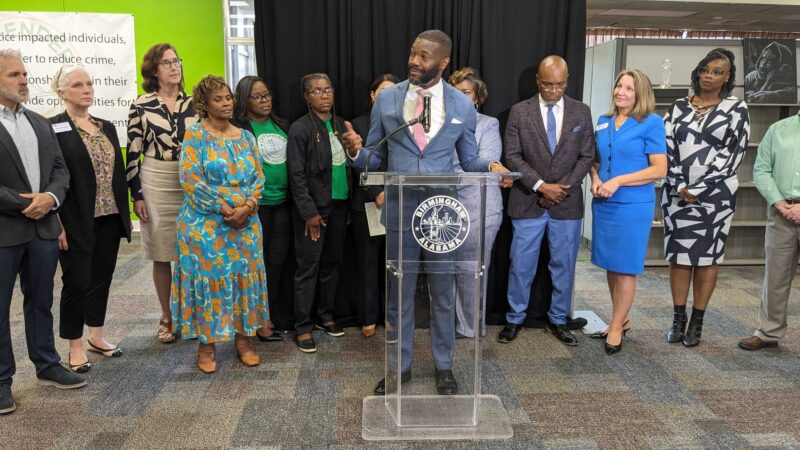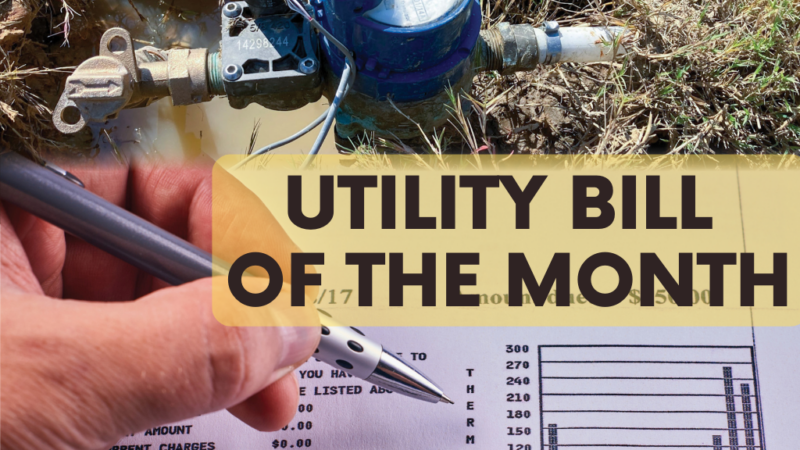Life After Hate: Leaving the White Supremacist Movement
Angela King was a neo-Nazi in her home state of Florida for eight years. After the Oklahoma City Bombing in 1995, King started to question how far she was willing to go for her white supremacist beliefs. She tried to leave the group, but failed. In 1998, King was convicted of a hate crime and spent three years in a federal prison. That’s where her life changed. King is now the deputy director of Life After Hate, a group that helps people leave violent, far-right organizations. She starts by telling WBHM’s Esther Ciammachilli how her experience in prison helped change her perspective on race.
King: It was not the institution of prison that changed me. It was the very real human experiences that I had with women who were from around the world, from different cultures, races, ethnicities. And what really made the greatest impact on me was that knowing that I was there for a hate crime there were women who still treated me with kindness and compassion. And it completely disarmed me. I was used to violence and aggression and anger. You know being treated kindly, especially by human beings I felt I least deserved it from, it was really a gift. They re-humanized me. And when that happened I was able to make that change and stop dehumanizing others.
Ciammachilli: Can you talk a little bit about how Life After Hate helps people now who are finding it difficult to leave that extremist lifestyle?
King: Today, Life After Hate not only helps individuals who are looking to disengage from extremist groups, we also have support networks for individual who, in some way or another, did leave, but might need, you know, still some support. When a person becomes involved in an extremist movement one’s entire identity becomes enmeshed in that movement. People may lose or be ostracized by family or friends or, you know, peers they once had because of these new beliefs. It makes a tremendous opportunity for the extremist group to kind of pull people in. So, when you come out of that people really need support. So, it’s very important for us and to be credible in the work that we do to not judge people when they come out of it, which we really can’t do because we know that at one point we were that person. So, instead of, you know, tackling the ideology straight on, we try to help the individual kind of come back to humanity. And we do that by sharing our own personal experiences, by, you know, talking about and analyzing the things that were going on in our lives when we became involved ourselves.
Ciammachilli: And with the political climate the way it is currently we’ve seen a rise in extremist activity and hate violence: swastikas popping up on buildings and the desecration of Jewish cemeteries. Do you see your work getting more difficult?
King: Given current events, I think that yes our work is more difficult but at the same time it’s bringing in to light conversations that need to be had. You know I can’t speak politics, but I can say that it when it comes to things like the quote unquote “Alt-right,” being involved in what I was once involved with the Alt-right doesn’t exist. What’s happening right now and when I was on my way out of the violent far right, we were hearing things like quit getting you know racist tattoos, quit shaving your heads, quit committing crimes and drawing attention to ourselves. What you need to do is go out and infiltrate and, you know, get into law enforcement, become a lawyer or become something important in society. And what we’re seeing today with the quote unquote Alt-right is nothing more than white supremacy that has been repackaged and relabeled and is being served up in a more palatable way with toned down language for the general public. It’s not to say that all you know of the people buying into it are inherently racist or hateful, but it’s clearly taking advantage of the fact that some people feel left out of the conversation as a whole across our nation.
New pilot program will offer housing, resources to people leaving prison
The Birmingham Reentry Alliance will provide wrap around services to dozens of men and women adjusting to life after prison.
A New Orleans garden paid hundreds of dollars in fees for a sewer that doesn’t exist
Galvez Garden owner Lissie Stewart has been fighting the New Orleans Sewerage and Water Board over inaccurate billing for years.
Alabama coal mine keeps digging after hundreds of fines and a fatal explosion
Following the death of a grandfather, Crimson Oak Grove Resources has left a community afraid for their homes and lives. An expert warns one resident may need to evacuate her home while she still can.
Florida’s 6-week abortion ban will have a ‘snowball effect’ on residents across the South
Abortion rights advocates say the ban will likely force many to travel farther for abortion care and endure pregnancy and childbirth against their will.
Attitudes among Alabama lawmakers softening on Medicaid expansion
Alabama is one of ten states which has not expanded Medicaid. Republican leaders have pushed back against the idea for years.
Birmingham is 3rd worst in the Southeast for ozone pollution, new report says
The American Lung Association's "State of the Air" report shows some metro areas in the Gulf States continue to have poor air quality.







